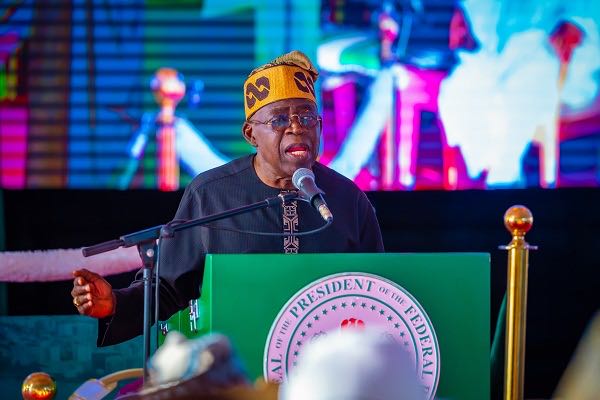The recent policy decision by the Tinubu administration to revert to Nigeria’s old national anthem has generated lots of furores on social media and in the public space. And this is for obvious reason.
Many Nigerians are wondering about the appropriateness of such a decision at a time when the governance indices are all seemingly on the downward spiral. The questions being asked include: why is this policy necessary now? What does it add to the urgency of articulating good governance policies around inclusive growth and sustainable development that can positively affect the lives of Nigerians? Even if we are to change the national anthem, why adopt one with colonial burdens?
Nation building is not a business that can be conducted with peripheral analysis or with social media mudslinging. And many of us, as citizens, are only open to the outcomes of policies without a deep understanding of what goes on behind the curtain. The key issue about governance is simply that government cannot always be unilinear in its focus.
While the fate of most nations is determined by economic policies and decisions, such policies are not mutually excluded from being side-by-side with non-economic intangible policies—like changing the national anthem. It might seem inconsiderate at this time to introduce this legislation, but it does not seem so if government needs an arsenal of ideological weapons around which to ground its developmental progress. And the national anthem is one such potent template for focusing the patriotic energy of the citizens.
This argument therefore demands a serious philosophical analysis of the content of the old anthem. From the analyses that I have read so far, two items seem offensive to many – “Our own dear native land” and “Though tribes and tongues may differ.” The first two have been considered to possess the racist connotation that justified Britain’s colonial enterprise. I agree that given the provenance of the song, the term “native” would evoke the unsalutary connotation it accrued through colonialism. However, “native” has a simple lexical sense; that which belongs to a particular place by birth. And that is what we want to make Nigeria, a place where we all can call ours—a country we collectively built by dint of civic loyalty and unstinting patriotism despite all odds. The word “tribe” suffers the same racist connotation, unfortunately. But over time, we all use this word freely and have adapted it to our sense of ethnic identity. We can even further argue that the reference to “Our sovereign Motherland” and “In brotherhood we stand” constitutes a subtle lexical cancelling out of any gender derogation that anyone might read into the old anthem.
Outside of these two words, and the fixation on colonial burdens in our national affairs, the old anthem, like the current, is a fine piece of national projection. I even make bold to argue that the re-adoption of the old one portends a subversion.
Scholars like Prof. Biodun Jeyifo have argued that English is now an African language (and demonstrated by Chinua Achebe), and I among public administration scholars have joined others in the long discourse over the reform of the colonial civil service system. This is the same subversive way the old national anthem can also be made ours through a deconstructed piece of national ownership that enable us to align the values and imageries embedded within the anthem to our understanding and aspirations about who we are as a people. Given the Tinubu administration’s drive to transform the Nigerian situation, grounding that renewed hope agenda on a national anthem that many excoriate for being a colonial fabrication would be a governance and symbolic coup of the century for Nigeria. That will be one way of saying we can reinvent ourselves as a people even through the structures and institutions that were meant to subjugate us.
Taken holistically, and outside the anxiety about self-flagellation, the anthem possesses all the key lexical items that could carry the burden of valuating our collective desire to build one nation that would no longer be saddled with the albatross of colonialism and underdevelopment.
While the current anthem is a call to action and a prayer, the old one is both an aspiration and a prayer. The first two verses speak to values and visions of what a great nation Nigeria can turn out to be if we dare to renew the hope that Nigeria’s founding nationalists had at independence. We hail a nation that is still a work in progress; a projection of unity in diversity. We hail a nation whose cornerstones would be truth and justice. We hail a nation where the politicians would develop generational proactiveness that govern with future generations in mind.
If there was once a country as Chinua Achebe lamented in his last lamentation of that same title, then there can still be one that we all can agree to build together—a nation where, with the concerted efforts of the government and the governed, “no man is oppressed/And so with peace and plenty/Nigeria may be blessed.”
Whether we retain the current anthem or re-adopt the old one, the issue of colonialism should no longer feature in our collective will to make of Nigeria what we all together have patriotically decided to. We can make of Nigeria something all of us and posterity can be proud of.
Prof Olaopa is the Chairman Federal Civil Service Commission

 Join Daily Trust WhatsApp Community For Quick Access To News and Happenings Around You.
Join Daily Trust WhatsApp Community For Quick Access To News and Happenings Around You.

